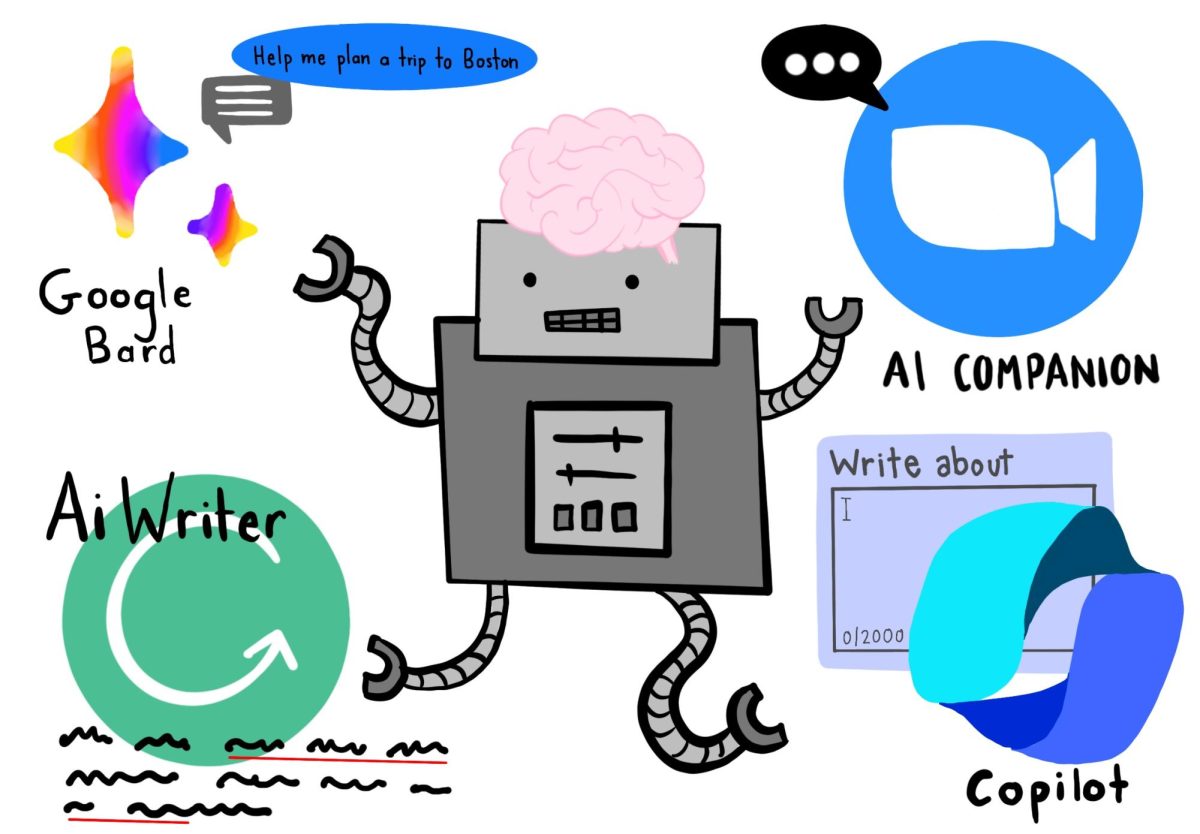The Office of Information Technology (IT) at Fordham announced the introduction of new artificial intelligence (AI) tools to facilitate learning for students and faculty in a university-wide email on Jan. 18. These tools include applications within Zoom, Grammarly, Google and more that fulfill a variety of tasks like drafting emails, transcribing interview notes and providing interview feedback.
Fordham has not instated a university-wide policy on AI in classrooms — the only official document outlining approaches to AI is a list of recommendations from an AI Vision Committee composed of professors from different departments. Anand Padmanabhan, vice president and chief information officer in the IT department, said that the “Fordham Supported AI Tools” initiative recognizes the impact of AI, as well as the known and unknown risks associated with it.
“The selection of approved tools is aligned with our safety, data protection, and academic guidelines to empower our users to experiment and explore while developing AI literacy,” Padmanabhan said.
These tools include generative AI, and the incorporation of Chat Generative Pre-trained Transformer (ChatGPT) to be integrated into Zoom (AI Companion), Google Bard (Chat Based AI tool), Grammarly (AI Writer) and the Copilot Edge Browser (Chat Based AI tool). IT has provided user tutorials for each of these applications in the email sent to the Fordham community. According to Padmanabhan, additional AI installations continue to be developed and reviewed for Fordham community members’ use.
Padmanabhan broke down the process of how IT determined which applications were suitable for use and were compatible with the “Fordham Supported AI Tools.” He added that a team conducted a five-month process to ensure that user data is protected.
Following the selection process, the committee shared the AI tools list with university leadership, including the faculty senate for feedback. Padmanbhan said that most of the tools were aimed for student and faculty use, with some relegated to faculty use only.
“The selection of approved tools is aligned with our safety, data protection, and academic guidelines to empower our users to experiment and explore while developing AI literacy.”Anand Padmanabhan, vice president and chief information officer in the IT department
“The first set of tools we shared are targeted towards productivity and learning,” he said.
Dennis C. Jacobs, provost and senior vice president for academic affairs at Fordham, released a comprehensive guide for faculty in July 2023 as an advisory to ensure the tools are integrated responsibly and effectively into their teaching methods. Padmanabhan shared that while using AI tools is up to each professor’s preferences, IT has provided an additional guide to help navigate this fast-changing environment. The university-wide email also advises students and faculty to be mindful of the data they input into any AI tools and avoid sharing any personal information.
Sigi Shure, Fordham College at Lincoln Center ’26, expressed mixed opinions on the introduction of AI tools to supplement learning. She said that while AI can be a helpful resource, it can also hinder authentic learning.
“I feel conflicted because it’s super helpful in some subjects like science, but it also defeats the purpose of learning and growing because we’re supposed to produce original work and thought, and it just undermines creativity in the classroom,” she said.
However, Shure also believes AI can also help students by completing administrative tasks such as transcribing meeting notes from class lectures, processing meeting recordings, summarizing discussions or offering feedback on presentation notes.
“It should hopefully help students who do have to miss class to catch up and work,” she said.
Ultimately, Padmanabhan acknowledged that students are already familiar with AI tools such as ChatGPT and Google’s Bard.
“Our guidelines help them do so responsibly,” he said. “These tools can complement academic endeavors when used ethically and transparently.”
Stevie Fusco contributed additional reporting to this story.



